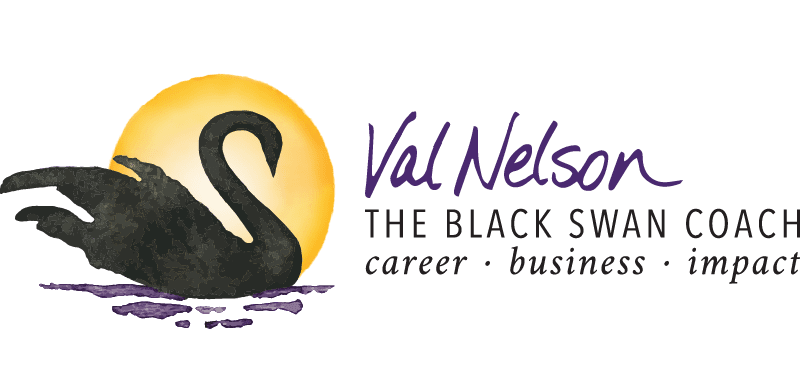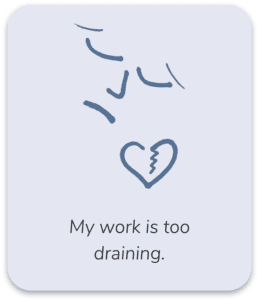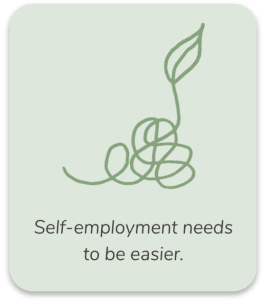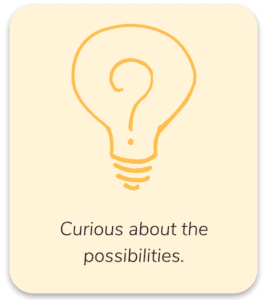Our career and business decisions need a fresh look as we consider the fields and lines of work where growth is happening now. And where do introverts and highly sensitive people (HSPs) fit in the mix? We have wonderful gifts to offer for these times.
Some things will remain, some things will rise strongly, and some things will drastically change or go away.
As a result, I decided it’s time for an update to my career and self-employment ideas for introverts and HSPs, to account for this twist in the road. It’s time to rethink your career and self-employment options, for now and for tomorrow.
I’m including only what has potential to be meaningful for our sensibilities and values. That’s important to our happiness and well-being. And it’s not an exhaustive list. It’s for getting your brainstorming started.

First, Know What You Need.
I wrote two posts in the past that help to explain what we need in our work environment (and what to avoid), as introverts, highly sensitive people (HSPs), and other sensitive souls. Those posts also give you some specific career and self-employment ideas:
- Best Careers for Introverts, HSPs, and Other Sensitive Souls
- Self-employment for Introverts: Business Ideas and Tips
If you haven’t read one of those, be sure to see those too, because there’s good background there, and the underpinnings and lists are still relevant today. Whether you read this post first or second, these posts should go together as a set for this to be most useful.
Meaningful lines of work that are growing now and will likely last tomorrow…
These fields are relevant whether you’re thinking employment or self-employment. By the way, self-employment, freelancing, and the gig economy will continue to grow. It might be easier than you think.
The previous posts, mentioned above, talk more about jobs or the roles you might enjoy playing, whereas this list focuses more on fields of work that will likely thrive.
These guesstimates are based on my study of the current situation as well as professionally researched predictions for climate and financial disruptions, which will continue to expand in bumpy ways. Sorry to say. 😞 (I’ve also got some tips for resiliency in the face of so much change, below this list. FYI, you are stronger than you think.)
These lines of work that I’m listing are not centered on making a lot of money, and that’s OK because that’s not the main measure of a fulfilling good life. But these roles will be in demand and meaningful and that’s what I suggest as good criteria, for the sake of your and others’ holistic well-being.
If you get creative and connect with others to help make it work, these ideas could become viable for your livelihood needs. Many of these are already booming now.
- Communications/storytelling for use in fundraising or marketing.
Specializations will definitely help (such as grant writing, non-profit donor appeals, or for particular social media channels, video), but generalists will also be in demand. - Design and illustration especially that supports storytelling and communications, as described above.
- Online training/ facilitation/ teaching – especially as relates to any of the fields on this list. If you know how to do something, maybe you can teach a course about it online.
- Software development and related customer support – especially for software creating work efficiencies and remote work/ distributed workforce possibilities.
- Project management for innovative companies.
- Soulful ways to connect and find solid ground, meaning, and community amidst uncertainty – including related to art and music. Your creative gifts are needed.
- Local farms and supplies/ and home gardening and supplies.
- Local food suppliers/ distributors/ shops.
- Takeout restaurants, delis, and food trucks.
- Specialized counseling/therapy that addresses the most pressing needs – such as chemical dependency, anxiety, and trauma.
- Health care services that address the most pressing needs – such as chronic pain, occupational therapy, infections, depression/anxiety.
- Grief-related services – including grief counseling, green burials, death doulas.
- Career change services done in creative affordable ways (help with resumes/LinkedIn, career transition coaching, job change training and coaching).
- Small business development services/trainings/support, done in creative affordable ways.
- Training and development for leadership, team development, and organizational skills.
- Training around community development and agile decision-making (e.g., Agile, sociocracy).
- Resiliency development (for business, organizations, teams, municipalities)
- Conflict resolution services (mediation, skill trainings, etc.)
- Alternative solutions and consulting for public safety and violence prevention.
- Cybersecurity (A tip: The training isn’t long and the pay is decent.)
- Various disaster preparation services.
- Products to help people through utilities disruptions. Such as wood stoves, insulation, well digging, rain collection, solar lanterns.
- Renewable energy systems — research and development, manufacturing, installation, and repair.
- Natural food production innovations such as permaculture, regenerative agriculture, and looking to indigenous methods for local foods. (Regenerative methods are huge.)
- Support for adapting to new foods and understanding evolving nutrition needs (such as adapting to more plant-based diets in some places).
- Teaching various DIY life skills like: finding medicinals in nature, repair skills, and similar.
- Support for being physically fit, especially outdoors. (Especially for building strength and for stress reduction.)
- Anything to do with bicycles.
- Creative offerings for fun and joy, which are always in demand and important for well-being and resilience. Especially participatory art and music, not just performance. Music can reach everyone so deeply. (Examples: teaching singing or playing instruments, ukelele groups, crafting.)
- Creative reuse – making things out of things otherwise discarded.
Are There Really Any Good Jobs or Workplaces?
Many jobs will continue to become replaced by automation or become more globally distributed and that’s hard to stop (unless the internet dies). Some things will go more local over time too. In the meantime, these two things will help you navigate and find good work:
- You’ll need to clearly express your strengths and how they can support the mission or the organization.
You’ll stand out if you truly know what you want and what you’re good at, and able to describe those things. (A career coach or career clarity course can help with these.) - Consider self-employment or contract work so you can create work that fits you.
(See: making self-employment easier.)
More ideas: Job Market Dead End? 7 Ways to Get Around It.
Got a Few Business Ideas? Now What?
If you have a business idea, there’s a lot to do before you invest down that path. I wrote up a checklist on when you know your new business idea is ready.
In my course, “Simple Steps to Uncover the Best Use of You Now”, you can get guidance to choose the path that fits you best.
Trying New Things Is Hard. Unpredictability Is Hard. What Helps:
It’s hard to try new things, especially in the face of so much unpredictability. I recommend small experiments first, instead of a big leap all at once.
You can do this. One piece that helps is knowing what to change, and what not to change. Like this willow tree:

If you are not very clear on your own strengths and your own values, it’s hard to choose the right path. You might need a career coach or a career clarity course to help you land in knowing what will work best for you.
Resources:
Related Posts
- Great Resignation… and Then What Happened? (Inside Stories of their Great Relief)
- Introvert/HSP Re-entry Dread? Re-considering Work and Socializing Post-pandemic.
- The In-Between Time in Your Career: 3 Things That Got Me Through It.
- Best Careers for Introverts, HSPs, Sensitive People: 70+ Jobs with Less Stress
- What If Your Career Ideas Feel Impossible?
- Self-employment Ideas for Introverts: How to Work for Yourself





